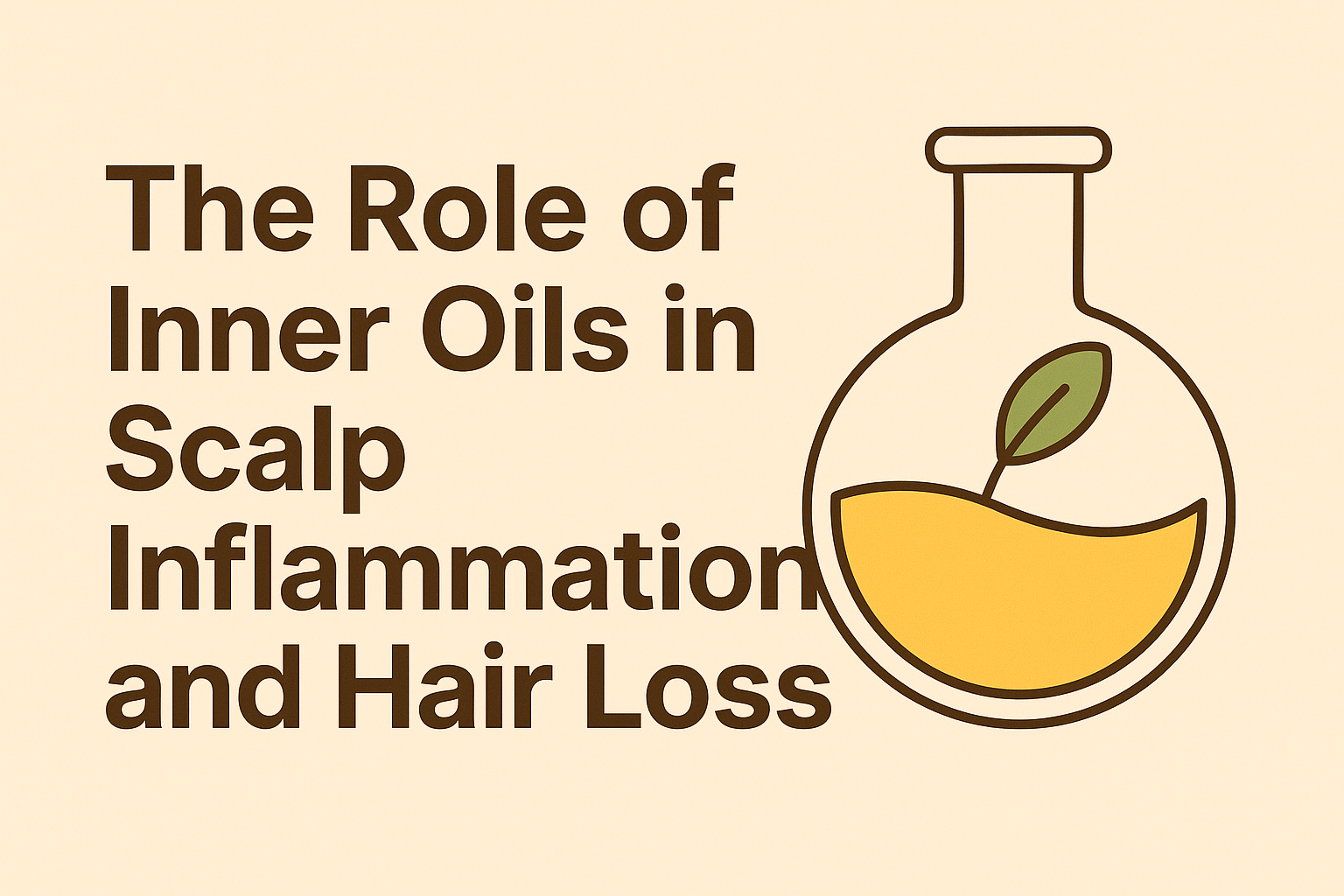The Hidden Role of Oils, Fats, and Gut Health in Scarring Alopecia
When it comes to scarring alopecias like CCCA (Central Centrifugal Cicatricial Alopecia), most people immediately think of inflammation, genetics, or even hair styling practices. But research is evolving, and now scientists are uncovering a new dimension: the way your body and scalp manage lipids (oils and fats) may be the missing link in why hair follicles become inflamed, scarred, and unable to regrow.
This is a game-changer for Black women—who are disproportionately affected by CCCA—because it shifts the conversation from “just inflammation” to a more holistic view of scalp and systemic health.
⸻
🧪 Lipid Metabolism: More Than Just Oil on the Scalp
The sebaceous gland (your scalp’s natural oil producer) and follicle stem cells work hand in hand to protect and regenerate hair. When sebaceous glands are lost—as seen in CCCA—the scalp dries out, follicles weaken, and inflammation gains the upper hand.
But the deeper story is in lipid metabolism—the way your body processes fats. Recent research shows:
• Disrupted lipid metabolism in the scalp may spark inflammation and accelerate scarring.
• PPAR proteins (tiny molecular switches that regulate fat usage and storage) play a critical role. When these are off balance, follicle health declines.
• Lipidomics, the science of mapping every fat molecule in the scalp, is uncovering which lipids protect your follicles and which ones are harmful.
This means the oils your scalp produces—or fails to produce—aren’t just cosmetic. They’re part of the root cause of permanent hair loss.
⸻
🌿 Inner Oils: The Gut–Scalp–Hair Connection
Here’s where it gets even more interesting. Your gut health directly influences your lipid balance, inflammation levels, and even your scalp’s oil production. Think of your gut as the “CEO of oils” in your body.
• Fat Absorption – A healthy gut ensures you absorb good fats (omega-3s, olive oil, avocado) that protect against inflammation.
• Omega Balance – Too much omega-6 from fried foods and processed oils fuels inflammation, while omega-3s calm it down.
• Microbiome Health – A diverse gut microbiome helps regulate immune responses, keeping scalp inflammation from spiraling out of control.
• Cholesterol & Bile – Your liver and gut regulate cholesterol, which is a building block for hormones and oils. Imbalances here can impact sebaceous gland activity.
When the gut is inflamed, stressed, or imbalanced, your scalp feels it. That’s why gut healing practices—like probiotics, prebiotics, fiber, and anti-inflammatory foods—are just as important as topical products.

⸻
🔗 Black Women, CCCA, and Systemic Health
Emerging studies show that people with scarring alopecia may also face higher risks of systemic conditions like cardiovascular disease. This reinforces the idea that scalp health is not just a “hair issue”—it’s a reflection of whole-body health.
For Black women managing CCCA, this means:
• Supporting gut and lipid health may help reduce inflammation.
• Lifestyle, diet, and systemic health should be part of the conversation alongside topical treatments.
• Early attention to inner health could slow progression before follicles scar permanently.
⸻
✨ Practical Steps to Protect Your Scalp Oils
1. Topical Nourishment
Use products that protect natural oils and reduce inflammation. Our Organic Hair Growth Oiland African Black Soap Hair Growth Shampoo are designed to cleanse gently and restore balance without stripping the scalp.
2. Feed Your Inner Oils
Add omega-3-rich foods like flaxseed, chia, salmon, walnuts, and avocado. Reduce fried and processed oils high in omega-6.
3. Heal the Gut
Support your microbiome with fermented foods (yogurt, kimchi, sauerkraut) and fiber-rich foods (greens, oats, bananas). A healthy gut = a balanced scalp.
4. Lifestyle & Stress
Chronic stress disrupts gut health, lipid metabolism, and hormone balance. Incorporate scalp massages, meditation, or journaling to reduce systemic inflammation.
⸻
💡 The Future of Hair Loss Research
The next wave of alopecia research is looking at lipidomics—mapping out scalp oils molecule by molecule to pinpoint what drives inflammation and scarring. This could lead to:
• New diagnostic tests that catch scalp lipid imbalances early.
• Targeted treatments that restore lipid balance and protect sebaceous glands.
• Personalized care based on your scalp’s unique lipid fingerprint.
⸻
🌸 Final Thoughts
Your scalp isn’t just thirsty—it’s metabolically alive. The oils it produces (or doesn’t produce) reflect not only what’s happening on the surface, but also deep inside your gut and body.
By nurturing your scalp and your gut, you’re not just treating symptoms—you’re supporting your whole self. And that’s the real secret to protecting your crown.
👉 Explore our full line of Shop All handcrafted products designed to nourish your scalp and restore balance from the inside out.


0 comments